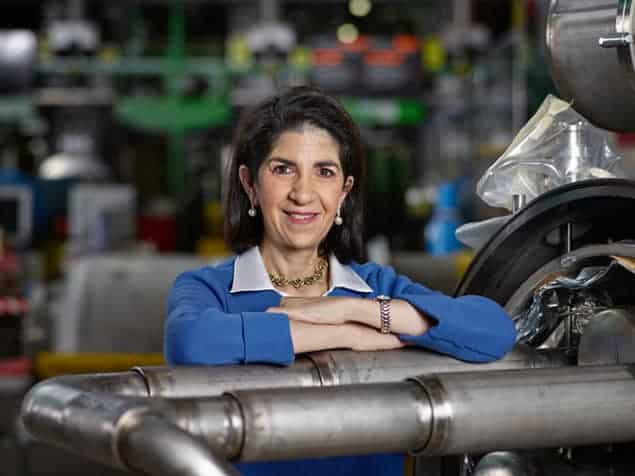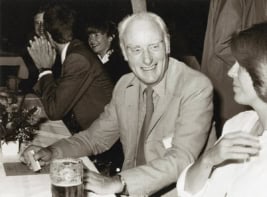Flash Physics is our daily pick of the latest need-to-know developments from the global physics community selected by Physics World‘s team of editors and reporters

Institute of Physics names six new honorary fellows
The director-general of CERN Fabiola Gianotti and James Hough of the University of Glasgow – who played an important role in the recent detection of gravitational waves – have been named honorary fellows of the Institute of Physics (the IOP). The fellowship is the highest honour bestowed by the UK-based IOP and this year’s new fellows also include former IOP president (2013–2015) Frances Saunders, who lead the UK’s Defence Science and Technology Laboratory in 2007–2012. Optics-pioneers John Pendry of Imperial College London and Wilson Sibbett of the University of St Andrews also gain honorary fellowships, along with Neil Turok, who is director of the Perimeter Institute in Canada and founder of the African Institute for Mathematical Sciences in South Africa. The fellowships will be conferred on 29 November.
American Physical Society retracts Trump statement
Following criticism from some of its members, the American Physical Society (APS) has retracted a press release – which it issued on 9 November – urging president-elect Donald Trump to “strengthen scientific leadership” (an archived copy can be viewed here). The statement urged the incoming Trump administration to “incorporate the necessary policies that will enable our nation to reclaim its scientific leadership, which it has lost during the past decade”. Some APS members expressed concern about the tone of the release, which said that the “APS believes that such policies will help the Trump administration achieve its goal captured by its slogan, ‘Make America Great Again'”. The nature of these policies remains unclear. In September the APS reached out to both the Trump and Clinton campaigns with a series of five questions on topics of interest to the physics community. The society received responses only from the Clinton campaign. The now-retracted release also highlighted the fact that the US was ranked 10th worldwide in “overall innovation” by the Information Technology and Innovation foundation, mainly due to lack of funding for research. The Retraction Watch website, which reported on the statement the day it was withdrawn, has also published a round-up of the criticism levelled against the release by physicists on social media, as well as some support for the statement.
Three quantum physicists named to World Economic Forum computing council

Three quantum computing experts have been named to The Future of Computing council of the World Economic Forum. Vlatko Vedral of the University of Oxford, Andreas Wallraff of ETH Zürich and Jeremy O’Brien of the University of Bristol have joined the 19 person council. According to the World Economic Forum – which is a not-for-profit foundation – the council will sit for two years and “will explore how developments in computing could impact industry, governments and society in the future, and design innovative governance models that ensure that their benefits are maximized and the associated risks kept under control”.
- You can find all our daily Flash Physics posts in the website’s news section, as well as on Twitter and Facebook using #FlashPhysics. Tune in to physicsworld.com later today to read today’s extensive news story on how microorganisms swim.



